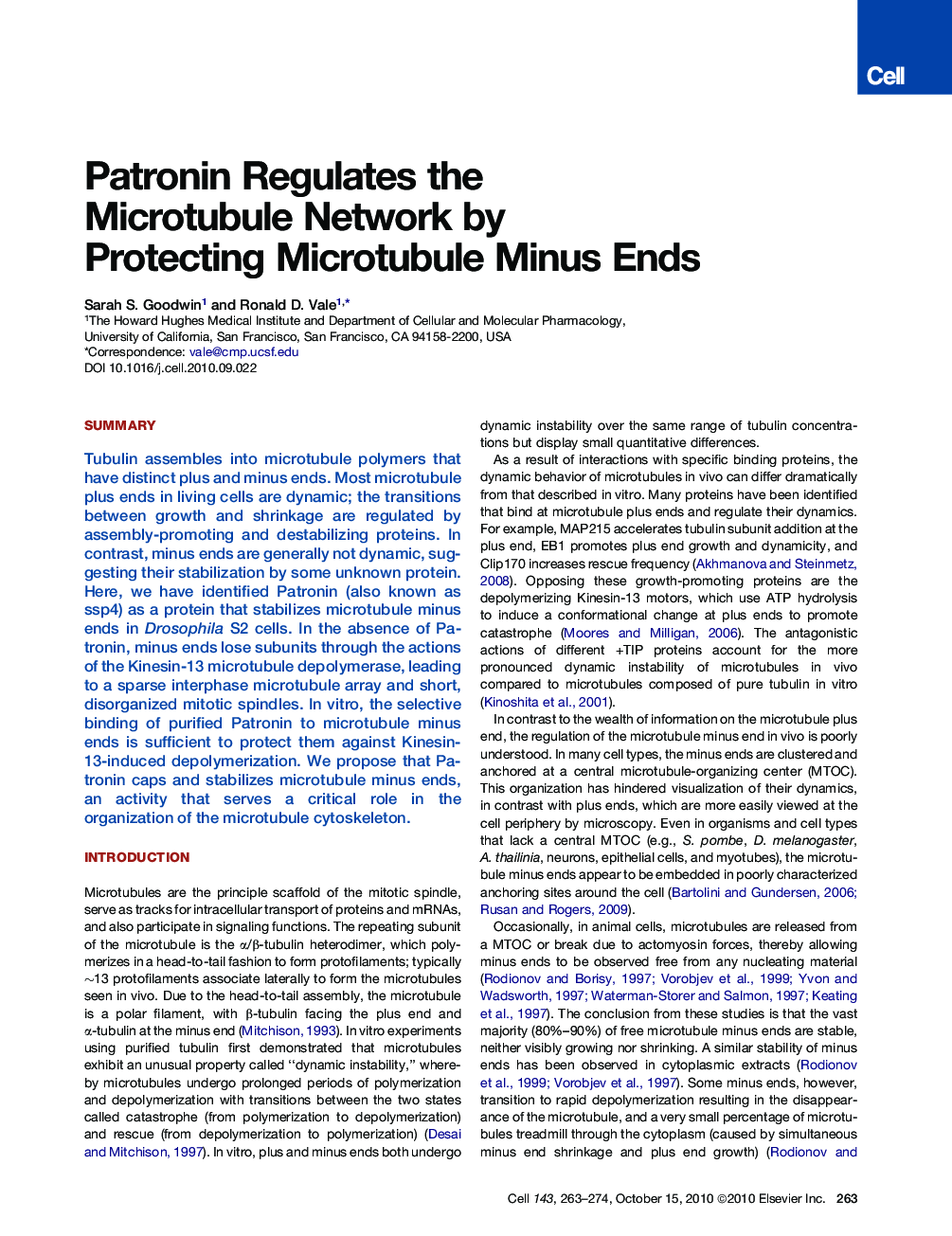| Article ID | Journal | Published Year | Pages | File Type |
|---|---|---|---|---|
| 2035974 | Cell | 2010 | 12 Pages |
SummaryTubulin assembles into microtubule polymers that have distinct plus and minus ends. Most microtubule plus ends in living cells are dynamic; the transitions between growth and shrinkage are regulated by assembly-promoting and destabilizing proteins. In contrast, minus ends are generally not dynamic, suggesting their stabilization by some unknown protein. Here, we have identified Patronin (also known as ssp4) as a protein that stabilizes microtubule minus ends in Drosophila S2 cells. In the absence of Patronin, minus ends lose subunits through the actions of the Kinesin-13 microtubule depolymerase, leading to a sparse interphase microtubule array and short, disorganized mitotic spindles. In vitro, the selective binding of purified Patronin to microtubule minus ends is sufficient to protect them against Kinesin-13-induced depolymerization. We propose that Patronin caps and stabilizes microtubule minus ends, an activity that serves a critical role in the organization of the microtubule cytoskeleton.
Graphical AbstractFigure optionsDownload full-size imageDownload high-quality image (146 K)Download as PowerPoint slideHighlights► Patronin protects microtubule minus ends from depolymerases in vivo ► Without Patronin, microtubule organization is defective in interphase and mitosis ► In vitro Patronin can protect minus ends from Kinesin-13-catalyzed depolymerization ► Similar to plus ends, stabilizing and destabilizing proteins regulate minus ends
